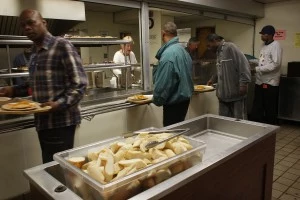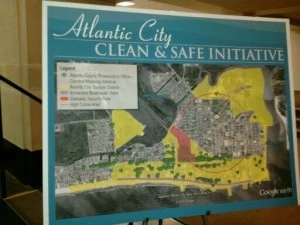New Maine casino nets nearly $10M in 1st 2 months
By Clarke Canfield
Associated Press / August 30, 2012
PORTLAND, Maine—Maine's newest casino had revenues of nearly $10 million in its first two months of operation, while revenues at the state's other casino in Bangor have fallen since the new casino opened.
Those numbers are strong, and revenues from the casino's table games are nearly double what was projected, said Clyde Barrow of the Northeast Gaming Research Project at the University of Massachusetts-Dartmouth. In July, the casino was winning an average of $2,471 per table game per day.
[When it is said that each Slot Machine permanently removes +1 job from the local economy, this is why. Clyde ignores the COSTS.]
"We had originally projected them to start out at about $1,300 per table per day and gradually ratchet up to $1,700," Barrow said. "Those numbers are comparable to Atlantic City."
[This tells you that Clyde's projections are merely guesswork - sometimes he's right, sometimes he's wrong.]
Oxford Casino is planning to add 10 more table games and hundreds more slot machines in October, said spokesman Scott Smith. It now has 529 slots and 12 table games including blackjack, craps and roulette.
"We're off to a very a good start," Smith said.
Net revenues at Bangor's Hollywood Casino, about 120 miles from Oxford, totaled $5.5 million in July, down from $5.9 million the same month in 2011. Hollywood Casino has 923 slot machines and 16 table games.
Some of the fall-off can be attributed to the opening of Oxford Casino, said General Manager John Osborne. This July also had fewer weekend days, the busiest days of the week, than 2011.
There's a lot of curiosity about Oxford Casino, but it's too soon to determine its long-term effect on the Bangor facility, he said.
"We believe long-term customers will still frequent their casino of choice, and we hope that will be Hollywood Casino in Bangor," he said.
It would be surprising if Hollywood Casino didn't feel any effect of the Oxford opening, Barrow said.
"That was always projected to be the case because they were going to siphon off some of the convenience gamblers in the immediate area around Oxford," Barrow said. "For a small facility,
Hollywood draws people from much further distances that would normally be the case, but that's because people don't have any alternatives. Once alternatives are presented to them, convenience gamblers will go to the closest facility."
Members on the Gambling Control Board are interested in seeing the impact the Oxford facility will have on Hollywood Casino, said Patrick Fleming, executive director of the board.
"We are looking at those numbers and will be making some comparisons, but we don't have a whole lot of data at this point," Fleming said.
http://www.boston.com/news/local/maine/2012/08/30/new-maine-casino-nets-nearly-months/vF2sZtnq7zqcjXCBRfaHoK/story.html
What they don't tell you --
There are + 40 articles about Maine HERE. [Click on 'Older Posts' to see additional.]
From: Casinos kill more jobs than they create
...surveys show that more than 95 percent of the patrons at Hollywood Slots are Maine residents, not tourists.
In other words, that money was already in Maine's economy, nothing was added. Instead of spending it downtown at retail shops, restaurants, car dealers and other businesses, people just ended up losing it in the slot machines.
That’s not economic development; that's just a shell game. Economic cannibalism.
To illustrate this, it would have been worth pointing out that between 2005 — the year Hollywood Slots opened — and 2009, consumer retail spending in the Bangor region declined, according to the state Planning Office.
Biddeford is doing better economically without a casino than Bangor is with one.
As for the increase in crime, the story mentions a single case of embezzlement — a woman who stole $40,000 from her employer and lost it all playing the slots. But it fails to mention an even bigger case just a few weeks ago — a Holden woman who was convicted of stealing $400,000 and losing it all at Hollywood Slots. Or the apartment manager in Portland who stole more than $200,000 in rent collections and gambled it away at the Bangor casino.
There are other cases too, and probably many others that we don’t know about. Do the public officials who gloat about all the revenue the city collects from the casino feel good about the fact that a sizable portion of it comes from stolen money?
The Bangor police chief is correct that over the past 20 years, Bangor’s crime rate has gone up and down. But what is important to note is that the nearly 40 percent increase in Bangor’s crime rate between 2005 and 2009 — the highest increase of any community in Maine — occurred at the same time that the crime rates in other Maine cities — Portland, Lewiston, Auburn — declined.



























